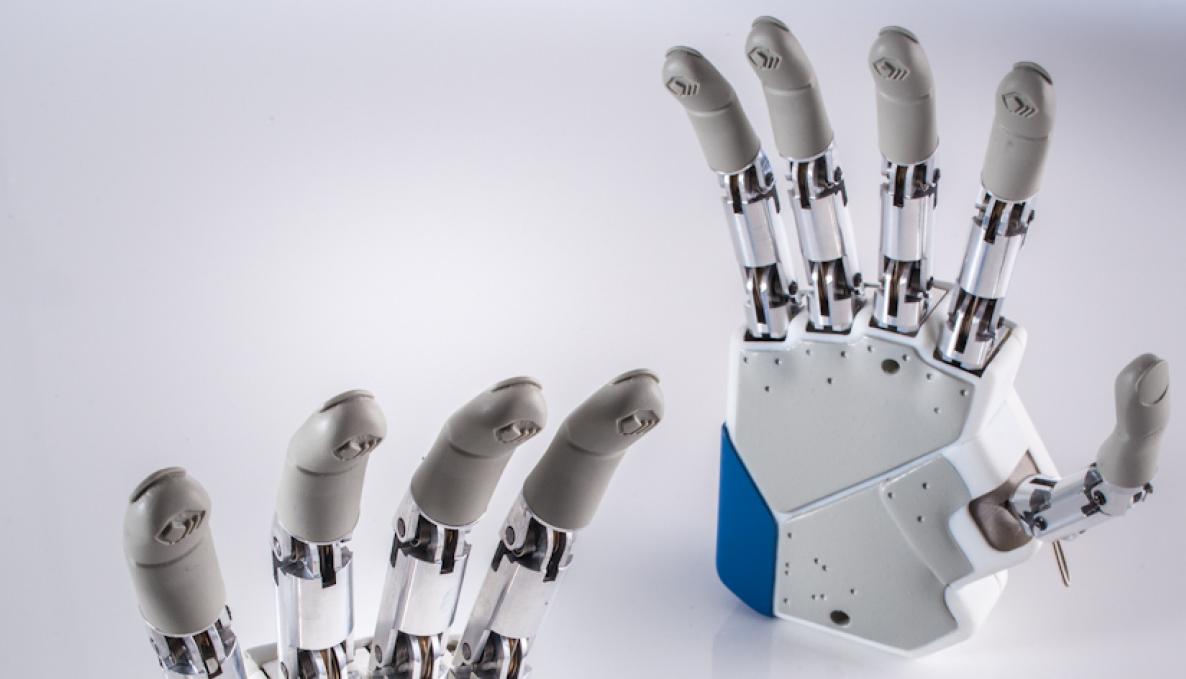BIOROBOTICS, DETOP PROJECT: A NEW FRONTIER OF SCIENTIFIC RESEARCH FOR ROBOTIC PROSTHESIS OF UPPER LIMB

Create new upper limb prosthesis, able to improve the life of people with amputations, through a new frontier of human-machine interface that retrieves the tactile perceptions and sensitive skin of patient.
DeTOP (Dexterous Transradial Osseointegrated Prosthesis with neural control and sensory feedback) is a collaborative project funded by European Commission. The project is coordinated by the BioRobotics Institute of Sant’Anna School of Advanced Studies and involves european universities, research centres and spin-off companies: Goeteborgs Universitet, Lund Universitet, University of Essex, Prensilia Srl, Integrum AB, Centre Suisse d’Electronique de Microtechnique.
DeTOP aims to create a new frontier of upper limb prosthesis able of reproducing the functionality of natural hand. Key objective is to translate, exploit and appraise already proven technology for trans-humeral amputation to the most frequent case of transradial amputation. Especially DeTop develops a technology that is based on the use of osseointegration as a long-term stable solution for the direct skeletal attachment of limb prosthesis. This solution allows to create more efficient bidirectional links between human and robotic prosthesis.
The robotic prosthesis has a mechatronic system with motors for movements and sensors that restore motor and sensory capabilities that the patient has lost after amputation. If in the previous scientific research movement control in upper limb prosthesis was controlled by sensors applied on human skin, DeTOP uses a technology of neuromuscular interface based on the application of osseointegrated gateway that creates bidirectional links between human and robotic prosthesis. This technology has been tested by Goeteborgs Universitet and Integrum AB.
The project will develop: the osseointegrated human-machine gateway for transradial amputation, a smart mechatronic coupling for connecting the human-machine to the prosthesis allowing safe wrist rotation; a dexterous hand-wrist prosthesis with tactile sensors; a physiological proportional myocontrol based on implanted electrodes; a neural feedback for restoring natural tactile sensations; a miniature processing and communication nodes for control and sensory feedback. The main components are a fixture fully implanted in the intramedullary cavity of the bone at the stump, from which an abutment extends percutaneously to serve as the anchor for the prosthetic limb.
“DeTOP is an important project that can open new scenarios for the future of robotic prosthesis – Christian Cipriani, Associate Professor of the BioRobotics Institute of Sant’Anna School of Advanced Studies, says - This system allows to check the osseointegrated treatment on transradial amputees. The prosthesis has high autonomy of movement and, for the first time in scientific research, allows to test an intramuscular control and, in parallel, to study aspects of sensory feedback. It will be crucial to working with partners of the project”.
The new transradial prosthesis will be assessed by three selected patients, implanted in a clinical centre, in Gothenburg, Sweden. The project partners will be able to constantly monitor the results that will produce a significant impulse in terms of scientific knowledge both in terms of clinical and technological implementation.
For other information, please visit the website: http://www.detop-project.eu/



